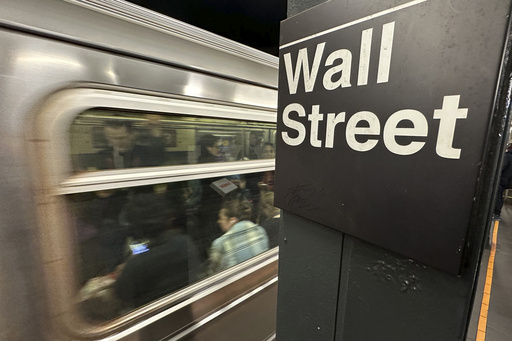
Asian stock markets experienced a mostly downward trend on Tuesday, even as Wall Street enjoyed gains, primarily driven by stocks expected to benefit from Donald Trump’s reelection.
In Japan, the Nikkei 225 index managed to rise by 0.6%, reaching 39,774.43 during morning trading. However, other markets in the region did not follow suit.
Australia’s S&P/ASX 200 saw a decline of 0.3%, dropping to 8,238.00, and South Korea’s Kospi index fell by 0.5% to 2,520.34.
Chinese technology shares have recently been on the decline amid investor concerns about upcoming earnings announcements from firms in China.
The Hang Seng index in Hong Kong decreased by 0.7% to 20,280.34, while the Shanghai Composite Index remained relatively stable, inching up less than 0.1% to 3,470.83.
On Wall Street, the S&P 500 gained a modest 0.1%, buoyed by a strong performance in the previous week following Trump’s election victory and a recent interest rate cut by the Federal Reserve to support the economy.
The Dow Jones Industrial Average rose by 304 points, or approximately 0.7%, while the Nasdaq composite experienced a slight uptick of 0.1%.
One significant driver for the S&P 500 was Tesla, which experienced a robust increase of 9.1%. CEO Elon Musk has become a close ally of Trump, leading to a nearly 15% stock surge the day after the election.
Investors are closely observing elements referred to as the “Trump trade,” looking for potential winners in a second Trump administration. For instance, JPMorgan Chase saw a 1% increase, buoyed by expectations for enhanced economic growth, reduced regulatory burdens, and a rise in M&A activity.
Moreover, speculation regarding a merger between Cigna Group and Humana gained traction, spurred by a more business-friendly administration. Cigna’s stock rose 7.3%, despite the company announcing it was not pursuing the deal, while Humana’s stock declined by 2%.
Companies more concentrated on the U.S. market have shown stronger gains, with the Russell 2000 index’s smaller stocks climbing up 1.5%. These companies are perceived as more likely to thrive under Trump’s America First policies compared to large multinationals.
Conversely, shares of Nvidia dropped by 1.6%, marking a significant drag on the overall market. Nvidia’s considerable valuation of approximately $3.6 trillion means it holds substantial influence within the S&P 500 and similar indices.
Recent excitement surrounding artificial intelligence has pushed major technology stocks upward, but critics argue that these valuations may be excessive. As a result, investors are shifting interest toward companies that may benefit directly from Trump’s policies moving forward.
The cryptocurrency sector also experienced volatility, with Bitcoin surpassing $87,000 for the first time amid Trump’s support for cryptocurrencies; Bitcoin reached a record of $87,491, as indicated by CoinDesk.
The anticipation of increased economic growth due to Trump’s policies has also led to rising Treasury yields, although trading in the bond market was halted on Monday for Veterans Day.
Since September, Treasury yields have been climbing, bolstered by a stronger-than-expected performance from the U.S. economy. There are hopes for continued stability as the Federal Reserve maintains its focus on fostering economic growth while successfully bringing inflation closer to its 2% target.
Overall, on Monday, the S&P 500 saw an increase of 5.81 points, closing at 6,001.35. The Dow gained 304.14 points, reaching 44,293.13, and the Nasdaq composite added 11.99 points, finishing at 19,298.76.
In energy markets, U.S. crude oil benchmarks slipped by 14 cents, settling at $67.90 a barrel, while Brent crude, the global standard, dropped the same amount to $71.69 a barrel.
In currency markets, the U.S. dollar rose to 153.85 Japanese yen compared to 153.72 yen. The euro slipped slightly to $1.0650, down from $1.0660.
